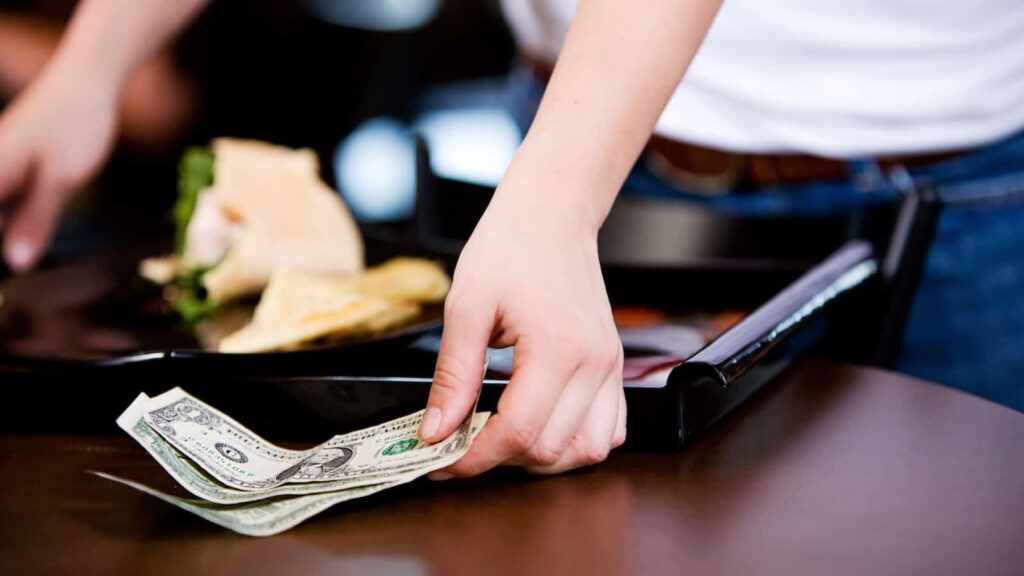9 Mistakes Americans Make When Tipping in Other Countries
9 Mistakes Americans Make When Tipping in Other Countries

When traveling abroad, tipping can be a tricky affair. What works in the U.S. doesn’t always fly in other countries. From how much to tip, to when and where to leave that extra cash, it’s easy to make a mistake. Let’s go over some common tipping errors Americans make while abroad, so you can avoid them on your next trip.
1. Tipping before service is complete

Tipping before the service is completed can sometimes feel like a nice gesture, especially if you’re used to doing so back home. However, in many places around the world, this is not the norm and can create awkward situations. This preemptive tipping might confuse service staff or may be seen as an advance payment rather than gratitude for good service.
It’s generally a good rule to observe local customs or ask discreetly when unsure. This way, you can ensure your tip fits the etiquette and is appreciated as a token of thanks after your service has been satisfactorily rendered.
2. Overtipping in countries where it’s not expected

In the U.S., tipping 15-20% at restaurants is pretty standard, but this isn’t the case everywhere. In many countries, such as Japan or South Korea, tipping isn’t expected and can even be considered rude.
Overtipping or tipping when not expected can put service workers in uncomfortable positions, as they might feel obligated to return the excess or worry about violating their employer’s policies. Always check the local tipping customs before you travel.
3. Failing to tip at all where it’s customary

Just as overtipping can create awkwardness, failing to tip where it’s expected is equally problematic. In many European countries, for instance, while the tip might already be included as a service charge, leaving nothing extra can be seen as a sign you were unhappy with the service. Always look up what the local tipping practices are in the countries you’re visiting to avoid any social faux pas.
4. Leaving coins as a tip in Japan

In Japan, leaving coins as a tip can be seen as disrespectful. The Japanese culture does not generally encourage tipping, but if you feel the need to leave something, a non-monetary gift, or a polite thank you note, is more appropriate. If you’re at a place where tipping is necessary, such as a western-style hotel, place the money in a decorative envelope and hand it over discreetly.
5. Rounding up instead of leaving a specific percentage

In some countries, like Germany, it’s common to “round up” the bill to the nearest euro as a tip rather than sticking to a specific percentage. This is quite different from the American system of percentage-based tips.
For instance, if your bill is €37, rounding up to €40 can be seen as a generous tip. Always make sure to understand whether rounding up is customary or if you should be following a percentage guideline.
6. Not understanding tipping in all-inclusive resorts

All-inclusive resorts can be particularly confusing when it comes to tipping because meals and services are pre-paid. However, tipping is still appreciated for exceptional service.
It’s a good idea to bring small bills for tipping staff who go out of their way to make your stay special. Each resort might have different guidelines, so checking ahead or asking at the front desk upon arrival can save embarrassment.
7. Tipping in foreign currency

While it might be tempting to rid yourself of any leftover foreign currency by tipping with it, remember that in some countries, especially those with a different currency, this can be inconvenient for the recipient.
They might end up with currency they cannot easily exchange. It’s usually best to tip in the local currency to ensure it’s both useful and appreciated.
8. Leaving a tip directly in someone’s hand

In many cultures, handing someone a tip directly can be seen as demeaning. A more respectful approach in such cases is to leave the tip on a little tray or include it in the bill when you pay. This method respects the dignity of the person receiving the tip and is generally seen as more polite.
9. Tipping overly large amounts in modest establishments

When in smaller or modest establishments, a large tip can sometimes be more of a burden than a blessing. It might create uncomfortable dynamics or expectations. A modest, appropriate tip according to the local standard is respectful of the establishment’s economic environment and can be a kinder gesture.
By keeping these tips in mind, you can navigate the complex world of international tipping etiquette more smoothly and show your appreciation appropriately across different cultures.
We are Mary and Eric, the founders of Be Right Back, a blog dedicated to romance around the globe and at home.
We are Mary and Eric, the founders of Be Right Back, a blog dedicated to romance around the globe and at home. With over 10 years of experience in dating and traveling to romantic places, we share our favorite date ideas and romantic destinations to help couples level up their relationships. Having lived in and traveled through the USA, we also share our favourite things to do in the States.
With 70,000 monthly readers and 16,000 followers on social media, Be Right Back is your go-to resource for romantic trip ideas and couple activities at home and abroad.
